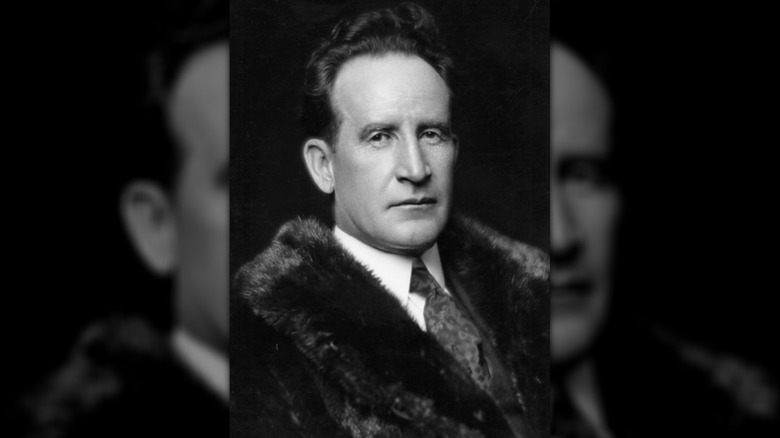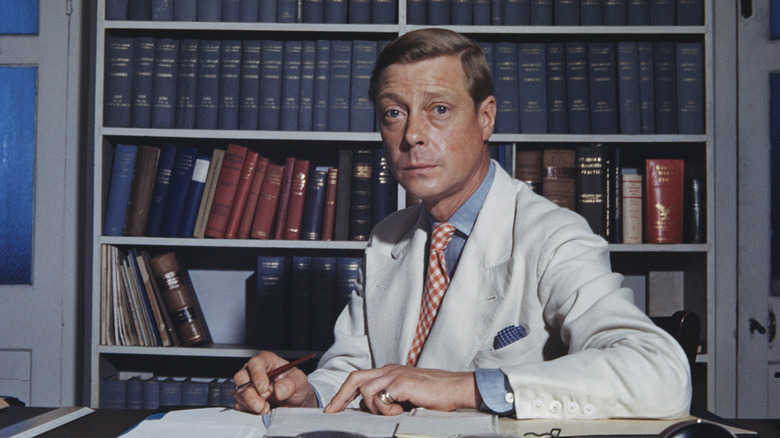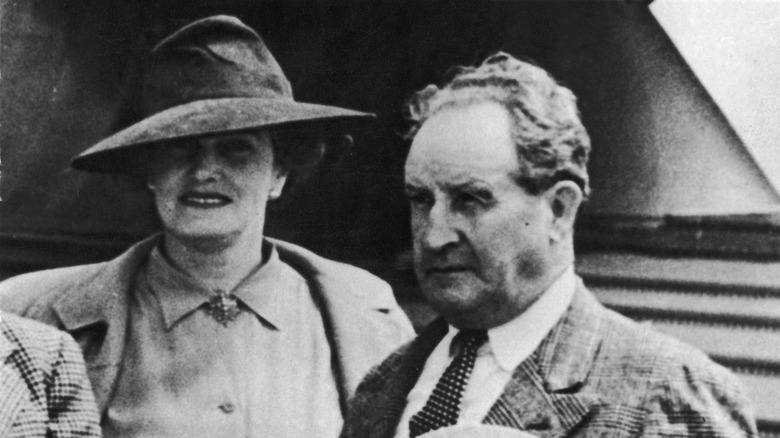The Sir Harry Oakes Theory That Would Change Everything
Sir Harry Oakes was a man of means, who made his fortune by gold mining in his younger years, and after moving to the Bahamas, he was one of the island nation's richest men. But on the night of July 7, 1943, Oakes was clubbed to death in his bed, only to be discovered the following morning by his longtime friend, Harold Christie, according to Jaquo. Even worse, when Oakes' body was found, it was clear that whoever the killer (or killers) was, they had tried to burn his body to destroy evidence.
Christie presumably would be the first suspect of the crime, but the authorities found that to be incredibly unlikely. Christie had been one of Oakes' closest friends, and even helped him gain British citizenship to move to the Bahamas; Oakes was born in Maine, but had made his fortune in gold mines in Canada. Christie had also been a business partner with Oakes and was a property developer in the Bahamas. Due to these connections, the authorities didn't suspect Christie to be involved with the crime.
The Duke of Windsor steps in
Given Sir Harry Oakes was a well-known man in the upper echelons of Bahamas society, his murder didn't go without publicity. The governor of the Bahamas at the time was the Duke of Windsor, Edward VIII, the former king of England. Once the leader of the British Empire, King Edward VIII had fallen in love with an American divorcee, Wallis Simpson, and in the pursuit of wanting to marry her, he abdicated the throne in 1936 (via Britannica). This move made him the concern of controversy within British and American circles, and with the title Duke of Windsor, he was sent to the Bahamas to govern the island nation from 1940-1945.
As the governor at the time of Oakes murder, the duke was able to take a major part in how the investigation was conducted. Suspiciously, he didn't want the local police in the Bahamas to investigate the crime, and with the inability to call in Scotland Yard due to World War II, Edward resorted to hiring two Miami police detectives who had previously worked for him, Captains James Barker and Edward Menchin, according to The Guardian.
Shoddy evidence
The first prime suspect was Sir Harry's son-in-law, Freddie de Marginy. The theory went that since Freddie was married to Oakes' eldest daughter, Nancy, if Oakes died, she would inherit a lot of money. Therefore, the two detectives believed that Freddie most likely killed his father-in-law to gain a fortune. The evidence, however, was starting to show otherwise. When de Marginy was arrested and brought to court, fingerprint analysts doubted the evidence. One detective claimed to have found a fingerprint belonging to de Marginy on a lacquered Chinese screen that had been damaged in the fire, according to Crime Investigation. Using an "inappropriate technique," the detective actually destroyed the fingerprint in the process. Even if the fingerprint had been genuine, it could've been from a previous visit.
De Marginy had also given the alibi that he had been at a party the night of Oakes' murder, and numerous witnesses were able to back up his claims (via Jaquo). He also told the authorities that he drove past Oakes' home that night, and given his free admission of this, the authorities had less reason to suspect him of murder. The court acquitted Freddie of the charges brought upon him, and the real murderer has yet to be found.
The least likely of them all
There have been many theories as to who actually killed Sir Harry Oakes, including the mafia, Nazi spies, wealthy businessmen, and even the Duke of Windsor himself. But the murder wasn't necessarily some great conspiracy. Remember Harold Christie? He might not have been so innocent after all. It is suspected that Christie owed Oakes a lot of money, and with Oakes planning to move to Mexico, he was expecting Christie to repay his debts. So, Christie had Oakes murdered and tried to burn down the whole house as a result, but failed to do so, and pretended to have walked in on the crime scene, according to The Guardian. In fact, a witness stated they saw Christie outside next to a boat the night of Oakes' murder, unlike Christie's story where he was staying the night, according to Crime Investigation.
But what about the Duke of Windsor? Why would he want to cover up the murder? According to this theory, the former king might've been embarrassed that this even happened under his watch, given his already negative reputation (via The Guardian). As for Christie, he went on to become a very wealthy man through property development in the Bahamas, and even though the murder has never been officially resolved, this story sounds so simple that it may just be the truth after all.



